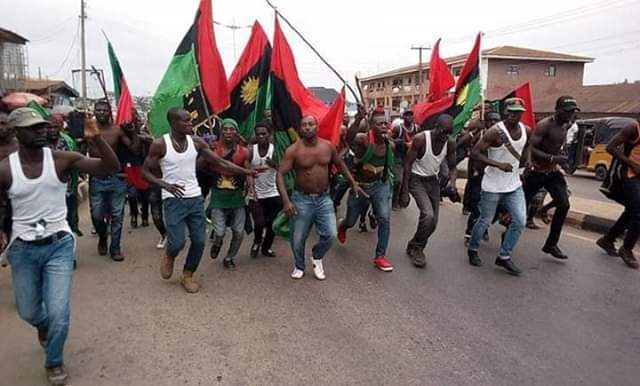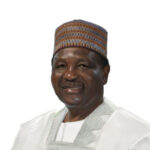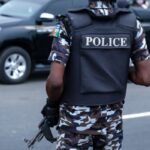Nigeria is not new to insurgency. It has witnessed many coups and fought at least one civil war to preserve its set boundaries. Lately, Abubakar Shekau emerged the leader of the bloody Boko Haram. His group brutalised the psyche of its victims by capturing people opposed to his ideology, making them dig their own graves before slaughtering and burying them without dignity.
Unfortunately, even at the height of Shekau’s reign of terror, Borno elders railed against any military intervention that could lead to heavy civilian casualties. Shekau sustained his reign of terror until an alleged internal dispute within the ranks forced him to die by suicide to evade capture.
Kidnappers borrowed a note from his book of crude bestiality that they have deployed on their victims. In blood-curdling video clips released to coerce relatives and governments to accede to their demands, they subjected their victims to mass torture. Yet there are negotiators and clerics asking government to employ dialogue and pay ransoms.
When a state presents itself as weak before any insurgent group, it inspires others. Criminally-minded insurgents are more wary of attacking countries that operate a zero-tolerance policy toward their antics. Nigeria needs to talk tough, and act even sterner with groups that threaten either its corporate existence or the dignity of its citizens. As far as history goes, the Nigerian state appears to pet criminals and criminality than send strong signals. This must change.
- Ondo mourns as 8 fuel scoopers die in tanker explosion
- Flood alert: Bauchi constitutes committee, sets up IDPs camp
Since the failed attempt to secede by Biafra, bloody groups have emerged threatening the corporate existence of the nation. A simple agitation for rights, such as the one led by the martyr Ken Saro Wiwa for remediation of Ogoniland and its environs is soon hijacked by hoodlums and turned into profitable brigandage. Sadly, the ruling clique has adopted the lynchpins of these groups as its favourite allies for political expediency.
Government has surrendered a substantial chunk of its sovereignty to billionaire brigands. In the Niger Delta the land has remained polluted even as the agitators have become security contractors. The majority of the people in the creeks are no better than they were when the agitation began. Indeed in most cases, they are worse off, as pollution has forced them to abandon their ancestral homes and businesses.
Government continues taking its rents from the multinationals and to share with states that are complicit in perpetuating pollution, poverty and penury for pyrrhic peace. Those that have benefitted from the falling crumbs have moved out of the creeks to enjoy their wealth and fight for more.
Like a recurring chancre, a similar thing is happening in Igboland with the agitation for the rebirth of Biafra. As a minority that is perpetually marginalised from the scheme of things at all levels; nothing qualifies an Igbo person to want out of Nigeria than a Yagba person, a Berom, an Amakiri, Maguzawa or the Dukawa person.
Marginalisation hits us all, albeit in differing degrees. It will hit even if every family has a country, a flag an anthem and a currency of its own. The answer to marginalisation is not the imposition of hardship on hapless citizens, but negotiation with state actors at all levels.
Since the demise of the Biafran dream, two groups have emerged in the South East. They are the Movement for the Actualization of the Sovereign State of Biafra (MASSOB), led by Ralph Uwazurike and the Indigenous People of Biafra (IPOB), led by Nnamdi Kanu and lately Simon Ekpa.
The common denominator among these groups are that the leaders have dual citizenship. This enables them to create a scorched-earth policy for hapless citizens at home while enjoying their opulence in welfare states abroad. Kanu is a citizen of Ireland, and Ekpa operates from the Nordic country of Finland. The average Alaigbo is in the East, trying to eke out a living.
After threatening the state from his base in Ireland, Kanu was kidnapped and brought back to face the law in Nigeria. Ekpa has remained firmly rooted in Finland from where he issues orders locking down the southeastern part of the country. How that liberates Biafra or even benefits citizens in the area remains to be seen. His action is akin to an own goal or collateral damage.
The perennial sit-at-home orders are damaging the prosperity of one of Nigeria’s most versatile parts. It began with the extension of weekends to Mondays and now to entire weeks. With its declaration, even farmers are forbidden from going to the farm while markets, schools and businesses are closed on point of death.
An earlier order against elections did not gain traction, some say because for the first time, the South East came close to getting what it wants – a presidential ticket. Those who issue these orders hinged their orders on the actualisation of a sovereign country of Biafra to lately, the release of Kanu. Strikes are recognised as legitimate means of driving home demands if they are issued by recognised entities. This curfew is by non-state actors in a country that operates a federal structure that grants notional autonomy to states and local governments.
Perpetual sit-at-home order impoverishes all those who live or do business in and with the area affected. It should be used in a democratic way. The fact that it includes the closure of schools, hospitals, and markets as well as the restriction of movement of goods and persons is what makes it condemnable. Defiance of the unlawful order leads to death for some and degrading and inhuman treatment for others. That is not an enviable prelude to independence or even democracy.
Things have gotten to a head now that state governors are bent on exercising their democratic superiority over the riff-raffs. To liberate their region they have threatened citizens acceding to the sit-at-home order with the withdrawal of business licenses and outright closure. This has put the citizens in a catch-22 situation.
It was disheartening seeing young pupils who showed up for their common entrance examinations and their teachers being so insanely brutalised by the shrouded enforcers of the stay-at-home order. Their punishments were degrading and inhumane like the tactics of an invading army.
While it is reassuring that Nigeria’s new military chiefs have promised to help restore order, there is the need to complement this with dialogue and rationality. In enforcing the law, security forces and government at all levels must ensure that the fundamental human rights of all law-abiding citizens are guaranteed and respected.
Leaders of thought and opinion should stand up within the region to condemn acts of brigandage. Traditional institutions must help in policing their communities to ensure that trades, vocations and institutions thrive. The Nigerian military and its security agencies are spread thin as it is, and could do with help from well-meaning citizens and leaders from the area and beyond.
The agitators should realise that closing down the entire region hurts Alaigbo more than it hurts the bureaucrats in Abuja. It should drop this idea and seek more democratic means of resolving its issues with the Nigerian state that does not put the lives and businesses of its own citizens in perpetual peril.

 Join Daily Trust WhatsApp Community For Quick Access To News and Happenings Around You.
Join Daily Trust WhatsApp Community For Quick Access To News and Happenings Around You.


